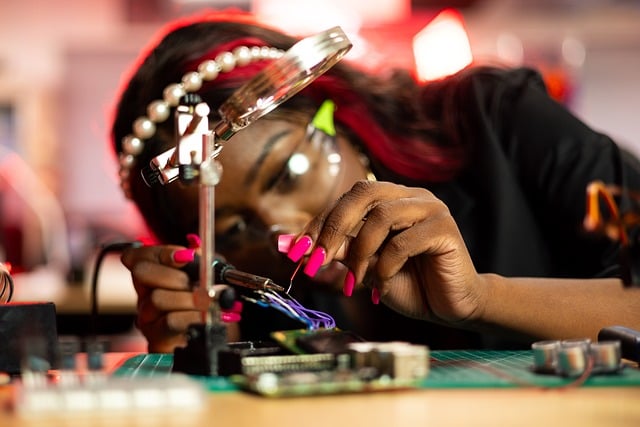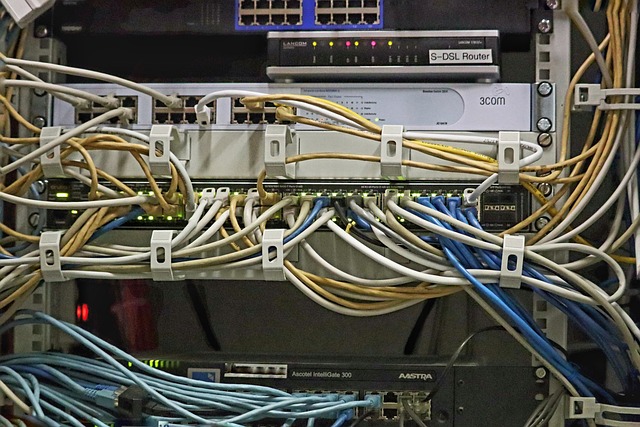# The Future of AI Technology: Redefining Human-Machine Collaboration Across All Sectors
The rapid advancement of artificial intelligence (AI) technology is reshaping industries and redefining the relationship between humans and machines. By integrating AI into various sectors, organizations are leveraging the capabilities of intelligent systems to enhance productivity, improve decision-making, and foster innovation. As we move forward, understanding the implications of AI technology on human-machine collaboration becomes essential for both businesses and individuals.
## Transforming Industries Through AI Integration
To grasp the impact of AI, one must first recognize how it is transforming traditional industries. In healthcare, for instance, AI algorithms are revolutionizing diagnostics by analyzing medical images with remarkable accuracy. Radiologists now rely on AI tools to detect anomalies, enabling them to focus on patient care rather than solely on image interpretation. This shift not only enhances diagnostic precision but also streamlines workflows, allowing healthcare professionals to allocate their time more effectively.
In the manufacturing sector, AI-driven automation is optimizing production lines. Robots equipped with machine learning capabilities can adapt to changing conditions, improving efficiency and reducing downtime. This evolution does not imply the replacement of human workers; rather, it emphasizes collaboration. Humans are tasked with overseeing complex tasks, while AI handles repetitive or hazardous duties, ensuring a safer and more productive work environment.
Moreover, the finance industry is witnessing a profound transformation as AI enhances risk assessment and fraud detection. Algorithms analyze vast datasets in real-time, identifying patterns and anomalies that would be impossible for humans to detect quickly. By augmenting human expertise with AI insights, financial institutions can make more informed decisions, minimizing risks and maximizing returns.
## Enhancing Decision-Making with AI Insights
AI technology is not just about automation; it is fundamentally changing how decisions are made across sectors. In marketing, for instance, AI tools analyze consumer behavior and preferences, delivering insights that inform targeted campaigns. Businesses can now tailor their strategies based on real-time data, resulting in higher engagement rates and improved customer satisfaction. This data-driven approach empowers marketers to make smarter decisions, ultimately driving revenue growth.
Education is another sector experiencing a significant shift due to AI. Adaptive learning platforms utilize AI algorithms to assess student performance and tailor educational content accordingly. Educators can focus on individual student needs, enhancing the learning experience and fostering better outcomes. As AI continues to evolve, the potential for personalized education will only expand, allowing for a more inclusive and effective learning environment.
Furthermore, in the realm of logistics and supply chain management, AI is optimizing operations by predicting demand and managing inventory levels. By analyzing historical data and market trends, AI systems can provide actionable insights that help organizations minimize costs and improve service delivery. The result is a more agile and responsive supply chain, capable of adapting to market fluctuations while maintaining high levels of customer satisfaction.
## Ethical Considerations and the Future of Human-Machine Collaboration
As AI technology continues to advance, ethical considerations surrounding its implementation become increasingly important. Ensuring that AI systems are designed and deployed responsibly is crucial for fostering trust between humans and machines. Transparency in AI algorithms, accountability for decisions made by AI, and the protection of user data are all vital components of ethical AI development.
The potential for bias in AI systems also raises concerns. Algorithms trained on historical data may inadvertently perpetuate existing biases, leading to unfair outcomes. Addressing these issues requires a concerted effort from developers, policymakers, and industry leaders to establish guidelines and best practices for ethical AI use. By prioritizing fairness and inclusivity, organizations can ensure that AI serves as a tool for empowerment rather than division.
Looking ahead, the future of human-machine collaboration will hinge on the successful integration of AI into society. As AI systems become more sophisticated, the line between human and machine capabilities will blur. This evolution presents opportunities for enhanced creativity, innovation, and problem-solving. For instance, AI-assisted design tools are enabling artists and architects to explore new creative horizons, pushing the boundaries of what is possible.
In conclusion, the future of AI technology promises to redefine human-machine collaboration across all sectors. By transforming industries, enhancing decision-making, and addressing ethical considerations, AI is poised to become an integral part of our daily lives. Embracing this technological revolution will require a proactive approach, where businesses and individuals alike adapt to the changing landscape. As we navigate this new era, fostering a collaborative relationship between humans and machines will be essential for unlocking the full potential of AI technology.











